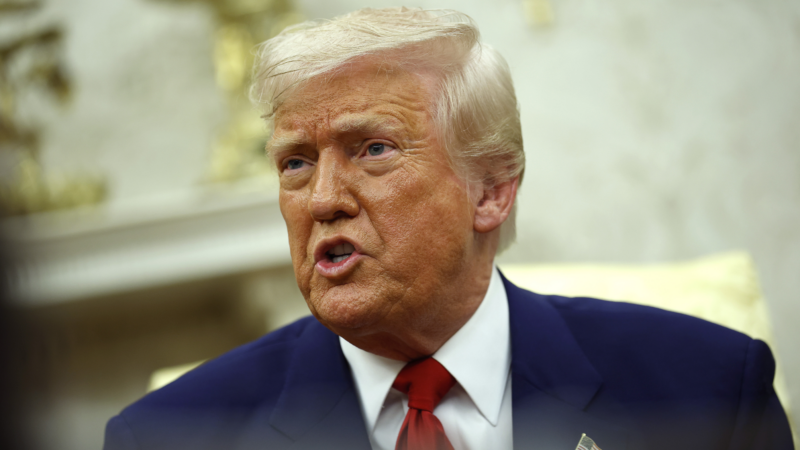Trump says he will pause tariffs for 90 days, but not for China
President Trump on Wednesday said on social media that he would pause tariffs on most countries for 90 days but would immediately hike tariffs on China to 125%.
White House press secretary Karoline Leavitt told reporters at the White House that tariffs would be brought down to a “universal 10%” level during the 90-day pause, aside from China.
Treasury Secretary Scott Bessent told reporters, “It took great courage — great courage — for him [Trump] to stay the course until this moment.”
Bessent said China was the “biggest source” of trade issues for the United States and the rest of the world.
“I’m not calling it a trade war, but I’m saying that China has escalated, and President Trump responded very courageously to that, and we are going to work on a solution with the our trading partners,” he said.

Bessent said the decision to pause tariffs was not made because of the sharp decline in the stock market, insisting the pause was needed to come to “bespoke” trade arrangements with other countries.
“It is going to take some time, and President Trump wants to be personally involved. So that’s why we’re getting the 90-day pause,” he said.
Bessent said that a range of issues would be on the table during talks with other countries, including liquefied natural gas (LNG) deals, non-tariff trade barriers, currency policies and subsidies. He said he has a meeting with Vietnamese officials today.
“These are complicated negotiations. These are imbalances that have taken decades to create,” he said.
Bessent told reporters that Trump had made his decision on Sunday. “This was driven by the president’s strategy. He and I had a long talk on Sunday, and this was his strategy all along.”
New York Giants hire John Harbaugh as coach after identifying him as their top choice
Harbaugh joins the Giants 11 days after he was fired by the Baltimore Ravens. The Super Bowl champion is now tasked with turning around a beleaguered franchise.
US launches new retaliatory strike in Syria, killing leader tied to deadly Islamic State ambush
A third round of retaliatory strikes by the U.S. in Syria has resulted in the death of an Al-Qaeda-affiliated leader, said U.S. Central Command.
NASA rolls out Artemis II craft ahead of crewed lunar orbit
Mission Artemis plans to send Americans to the moon for the first time since the Nixon administration.
Trump says 8 EU countries to be charged 10% tariff for opposing US control of Greenland
In a post on social media, Trump said a 10% tariff will take effect on Feb. 1, and will climb to 25% on June 1 if a deal is not in place for the United States to purchase Greenland.
‘Not for sale’: massive protest in Copenhagen against Trump’s desire to acquire Greenland
Thousands of people rallied in Copenhagen to push back on President Trump's rhetoric that the U.S. should acquire Greenland.
Uganda’s longtime leader declared winner in disputed vote
Museveni claims victory in Uganda's contested election as opposition leader Bobi Wine goes into hiding amid chaos, violence and accusations of fraud.






